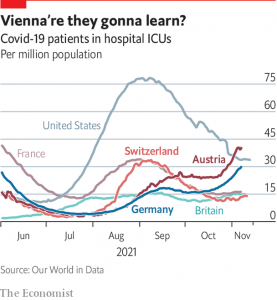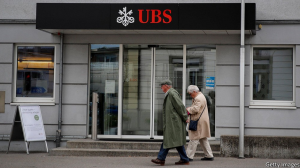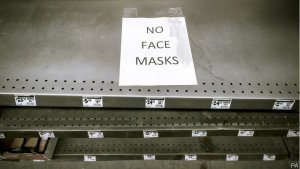“IT IS TERRIFYING, all the arguments and measures to persuade the unvaccinated to get the jab are simply ignored,” said Manfred Güllner, head of Forsa, a German pollster. The cause of his consternation? In a recent Forsa survey, 65% of the 3,048 unvaccinated Germans polled said they would “definitely” not get a covid-19 jab in the next two months.
A further 23% were inclined not to.
Germany, Austria and Switzerland have the highest shares of unvaccinated people in western Europe, bar tiny Liechtenstein and Luxembourg. Most of their hold-outs vote for populist, far-right parties. In Germany, for example, around 50% of those polled by Forsa voted for the AfD, a far-right party particularly popular in the east; 15% cast their vote either for Die Basis, the
Articles by The Economist
European banks need new chiefs
February 13, 2021EUROPEAN BANKS’ fourth-quarter earnings, releases of which are clustered around early February, have been surprisingly perky. Those with trading arms, such as UBS or BNP Paribas, rode on buoyant markets. State support helped contain bad loans; few banks needed to top up provisions. Markets should keep them busy and, as the economy recovers, loan volumes should rise. Many banks plan to resume dividends this year.
Yet the chronic illness that has dogged the industry for years remains. Interest rates are rock-bottom, compressing lending margins. Lenders must set aside lots of capital to placate watchdogs, which depresses returns. Costs are sky-high; hard-hit by the financial and euro-area crises, lenders have under-invested in digitisation. And Europe has too many
New trade barriers could hamper the supply of masks and medicines
March 13, 2020IT IS BAD enough when individuals stockpile pasta and toilet paper. It is worse when governments put a protective ring around medical equipment. As the covid-19 pandemic leads to a rush for medical gear, the World Health Organisation (WHO) has warned that supplies of respirators and medical masks will not keep up with demand, and soon global stocks of gowns and goggles will be insufficient too. Some governments are erecting trade barriers to safeguard their supplies. According to a new report from Global Trade Alert, a trade-policy monitoring service at the University of St Gallen in Switzerland, by March 11th 24 countries had restricted exports of medical equipment, medicines or their ingredients.
The stockpiling started early. The Chinese government bought up



